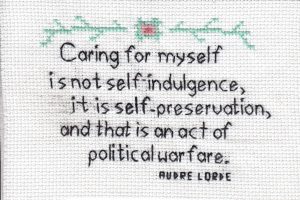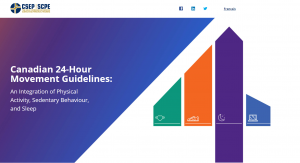ETFO’s position on in-person learning remains unchanged. The union firmly believes that the daily, in-person model of instruction and support best meets the educational, developmental and social needs of students, provides the best experience for support, and is the most equitable learning model for all students. ETFO’s expectation is that elementary virtual learning in any capacity, including through hybrid models of instruction, will end once the pandemic ends.
It’s been 6 weeks since I started teaching synchronously online and it’s draining me. Before the winter break, I was teaching synchronously online and in class. As a few of my students are solely online, I tried to make them feel included in all our lessons. Being physically in school gave me the opportunity to interact with people, from a distance. I enjoyed my days teaching physically present in school.
But teaching online all day is different. Interacting all day in a virtual class forum drains me.
Teaching online is also lonely. Yes, I get to spend my day talking to students through my online meeting platform. But in this lockdown, I am isolated as my partner is often away working for the Red Cross. It’s just me and my 19-year-old cat, Whitney.
When I was teaching in class, I had a chance to go for a walk, stretch my legs, visit with colleagues (via social distancing) and get outside during my recess duty. While teaching solely online, I am stuck in my home office at my desk.
For me, teaching is more than just explaining and guiding via lessons. Teaching is all about reading how students are feeling about their work and figuring out how to help them understand content and the ideas within the content. When I teach exclusively online, I feel blind as I cannot use my senses to read students’ moods and body language. This means I need to focus solely on students voices and asking questions to promote clarifications within students’ work.
One day, it was particularly challenging as I was dealing with a student who was having challenges attending online. I dealt with constant interruptions while teaching. I told the student that I would help them separately on a one-on-one basis. Their mother was also calling me on my cell phone about this student’s behaviour/mood. I heard the student state that “My mom wants to talk to you right now!” I informed the student that I would help them later and that I would call their mother after school was over. When I did go to help the student, they had left the online meeting. Mom did not pick up when I called.
I usually have a solid attention span, but this situation threw me off. While teaching about the surface area of 3D solids, I made a mistake forgetting that the formula for the area of a triangle is base times height divided by two. It was embarrassing but I turned it into a learning opportunity by explaining that I learned about math by making many mistakes.
I find being online all the time, exhausting. It’s pushed me towards burn out were I sit wanting to do nothing. I am also dealing with ongoing insomnia. My mood is leaning towards more being cranky than experiencing anxiety.
Being online sucks my “social” energy until it is gone.
As I try to write about issues that are informative and helpful to teachers, I’ve included some things that I’ve found helpful being isolated during this lockdown.
Acknowledge Yourself
Taking steps to care for yourself is not a selfish act as it is critical to your happiness and wellbeing. Without self care and setting limits with work, your physical and mental health will be impacted. Your effectiveness in your work will deteriorate. Work less to be more effective.
Restore Yourself
Take time to do something you love.
This could be taking up a hobby you’ve done in the past or reading books you’ve wanted to read. I’ve learned if I work too much, I become less effective. Taking time to restore myself with non work activities makes me more effective as a teacher in my practice. My hobby? I’ve returned to my cross-stitch, focusing on making “Really Cross Stitch” by @haleykscissors which has been fun and cathartic!
Calling Friends and Colleagues
Talking to friends and colleagues connects me to others and gives me joy to hear their voices. I have not seen some of my friends and colleagues, face-to-face, in over a year now. I miss the regular collegial conversations we once had at work. Reaching out to others also supports them in this time of isolation. It keeps us connected, even though we are apart.
Sleep Hygiene
Getting to sleep is an ongoing issue for me. Waking up is worse as I feel like “molasses flowing in February.”
When I am overworked, I find it hard to relax enough to fall asleep. Being relaxed before sleep means sleep comes quicker. I takes steps to make sure that I do not take any stimulants past 1 pm, drinking only decaffeinated teas at night. I even refrain from chocolate.
My need to fall asleep challenges me as my partner virtually falls asleep as soon as his head hits the pillow. I end up listening to him and my cat softly snore while I toss and turn, flipping like a fish in bed. The worse thing I can do is look at the clock, noting how long it has taken me to get to sleep. Some nights one, two, and three hours pass before sleep finds me.
When reading up on how to get a better sleep, I’ve found some tips that might promote sleep and establish an improved sleep hygiene :
- Go to sleep and wake up at the same time every day (even on weekends!)
- Set an alarm to go to bed, as well as to wake up
- Take a bath with bath salts
- Hydrate with warm caffeine-free drinks
- Skip alcohol before bed
- Try to let go of your daily “drama” related to work and/or family
- Big one for me – stay off social media (I’m known for my late-night Twitter posts)
Readers, if you have any other tips to pass on, please note them in the comment section.
Wishing you more rest, sleep, & restoration,
Collaboratively Yours,
Deborah Weston, PhD



